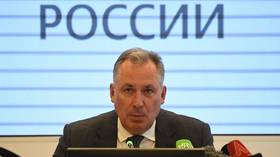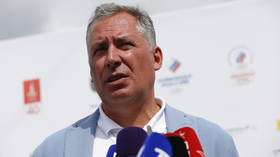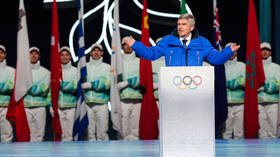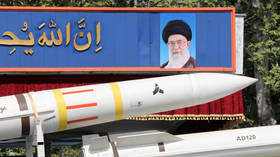West at ‘dead end’ with sanctions – Russian Olympic boss

The sports sanctions imposed on Russian athletes have threatened the basic principles of the Olympic movement but the West will eventually realize the “injustice” of the situation, according to Russian Olympic Committee (ROC) president Stanislav Pozdnyakov.
Pozdnyakov met with fellow officials and Russian athletes in Moscow on Thursday, at an event which welcomed counterparts from Belarus – a nation which has also faced bans from international competitions as a result of the conflict in Ukraine.
Pozdnyakov took aim at the punishments levied on Russia and Belarus which have largely been imposed as a result of a recommendation by the International Olympic Committee (IOC), and which have already led to suggestions that athletes from the two countries could be forced to miss the Paris 2024 Olympics.
“Our main task is to clearly look at this situation from the point of view of our past, present and future, we need to get together and realize our aims at the Olympics in Paris 2024,” said Pozdnyakov, according to TASS.
“Together we are aiming for a dialogue with international sports organizations, it is happening and will continue to happen.
“I am sure that the realization of the dead end of this [current] path will happen, it is already happening before our eyes, any injustice will dissolve sooner or later,” added the ROC chief.
Pozdnyakov noted that IOC president Thomas Bach should be well aware of the debilitating impact of sporting sanctions, having felt them personally as an athlete when West Germany boycotted the 1980 Moscow Olympics.
In his role as IOC chief, Bach has claimed that the current bans on Russian and Belarusian athletes partly “protect” them from supposed hostility they would face outside their respective countries, refusing to describe the measures as “sanctions.”
Russian Olympic official Pozdnyakov – who is a four-time Olympic champion fencer – took issue with that stance.
“Although some foreign colleagues are trying to present this situation as a defense of the Olympic movement, we do not agree with such an assessment,” said the ROC official.
“These really are sanctions. Any restrictions, any violation of freedom and the opportunity to compete in a fair fight are clearly sanctions…
“Now we see that the whole world is undergoing changes, including the Olympic movement. The IOC did not pass this test, the intervention of political forces, the collective West, made a similar split in the Olympic movement.
“The Olympic movement is very heterogeneous, but most of the National Olympic Committees, oddly enough, adhere to the principle of maintaining distance from political influences.
“Another thing is that most of the political elite is occupied by representatives of the countries that impose sanctions against Russia at the state level. And this has spread to our athletes,” added Pozdnyakov.
On Wednesday, Russian double Olympic fencing champion Sofya Velikaya was part of a conference call with Bach as a representative of the ROC Athletes’ Commission, along with counterparts from athletes’ commissions from other nations.
Velikaya revealed that IOC officials had vowed to continue searching for a “solution” to the current bans on her compatriots, adding that she had gained support for the return of Russian athletes from representatives of numerous other countries.














